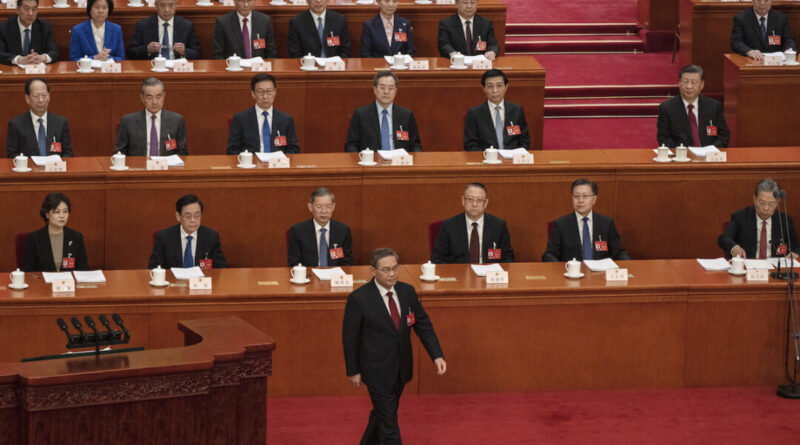Leader of the Chinese Communist Party Scheduled to Visit Australia
Chinese Community Party Premier Li will visit key locations including a lithium plant and winery.
The Chinese Communist Party (CCP) Premier Li Qiang will visit Australia next week, according to a release from Prime Minister Anthony Albanese.
“Australia continues to pursue a stable and direct relationship with China,” Mr. Albanese said on June 11.
“This visit is an opportunity to engage directly on key issues for both our nations.”
Premier Li will arrive on June 15, and remain in Australia until June 18. It will be the first visit to Australia by a CCP premier since 2017.
He will arrive in Adelaide, before meeting with Mr. Albanese at Parliament House for the Annual Leaders’ Meeting in Canberra, and then traveling to Perth.
“The leaders will engage with Australian and Chinese business leaders at the seventh Australia-China CEO Roundtable,” the prime minister said.
“This will make a valuable contribution to strengthening relationships between business leaders in China and Australia.
“During the visit, the leaders will also attend a community event to acknowledge the deep contribution of the more than one million members of the Chinese-Australian community to our nation’s multicultural success story.”
Mr. Albanese said the visit was an “important opportunity” to engage directly with key issues between nations.
“China is Australia’s largest trading partner and our economic relationship continues to bring substantial benefits to both our countries,” he said.
“We will cooperate where we can, disagree where we must, and engage in our national interest.”
New Zealand Prime Minister Christopher Luxon also announced he would be meeting with Premier Li, taking to X to make the announcement.
“I look forward to warmly welcoming Premier Li in New Zealand this week,” he said.
“The premier’s visit is a valuable opportunity for exchanges on areas of co-operation between New Zealand and China.”
Mr. Luxon later posted a message to X about the importance of trade relationships.
“Our trade relationship is a key plank to economic success,” he said.
“We are a small, geographically isolated country that relies on exporting our goods to the world.”
Australia’s exports to China are currently valued at $144 billion (US$95 billion) annually, a rise of $78.5 billion over the past decade.
Meanwhile, New Zealand’s trade with China sits at $33.4 billion annually.
Given ongoing tensions over trade restrictions and regional security issues, the Australian Strategic Policy Institute (ASPI) has highlighted the need for caution in dealings with Beijing.
“There is continuing speculation in Australia about what Beijing might ask for in return for lifting its coercive trade measures,” the institute said.
“Whether that is a loosening of our foreign investment regime or giving our support for negotiations for China to enter the Comprehensive and Progressive Trans-Pacific Partnership.
“If a country and economy like Australia can remain steady in the face of Beijing’s attempts to weaponize trade, and can stand alongside partners who are doing the same, Beijing will have a shrinking strategic space in which to play its coercive trade games.”



